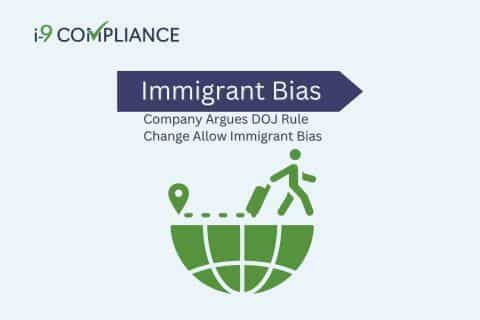Company Argues DOJ Rule Change Allow Immigrant Bias

November 07, 2023
A major space technology company has pushed for an injunction to a case accusing it of discrimination. According to the lawsuit, the company discriminated against asylees and refugees. However, the employer claimed that the Department of Justice (DOJ) administrative law judges are improperly appointed. As such, hearing the case out of court is unconstitutional.
The issue concerns a lawsuit the DOJ filed last month against the space technology corporation. Allegedly, the company regularly discouraged asylees and refugees from applying. It also frequently refused to hire them due to their citizenship status. This practice reportedly took place from September 2018 to May 2022.
The DOJ also announced how the employer made regular public statements about their hiring requirements. Such statements appeared in job postings, too. The company claimed federal export control regulations prohibited hiring non-U.S. citizens or lawful permanent residents. However, the DOJ clarified that export control regulations place no such restriction.
The DOJ explained that these individuals’ permission to live and work in the U.S. has no expiration date. Furthermore, they have an equal standing under U.S. export control laws. According to the DOJ, asylees and refugees could qualify for the same positions. They may also access export-controlled information like U.S. citizens and lawful permanent residents.
During this lawsuit, the company filed against the U.S. government. They claimed that the case violated the U.S. Constitution. The employer explained how the U.S. Attorney General appointed the DOJ’s administrative law judges and that they have powers reserved for officials appointed by the president. In addition, the company claimed a jury trial held in a federal court should oversee this case. This claim is because the suit seeks monetary penalties for Immigration and Nationality Act (INA) violations.
As a result, the company has maintained its stance about the case proving unconstitutional. They hold this stance despite the DOJ recently issuing an interim rule to clarify the role of administrative law judges. According to the DOJ, these judges do not act as “principal officers.” Instead, they are “inferior officers” whose decisions may undergo review by the Attorney General.
However, the company argued that this ruling contradicted how the DOJ has handled cases like theirs. It also opposed Section 1324b of the INA. Contrary to other INA sections, it does not provide for review by the Attorney General. It remains uncertain whether the court will agree with the company’s argument.
The increasing enforcement efforts among federal authorities have made compliance a growing concern. As such, employers should focus more on hiring processes like employment eligibility verification (Form I-9). One way to maintain compliance is by integrating an electronic I-9 management tool.
When it comes to your employees, automation makes eligibility verification quick and simple. Ensure compliance today with I-9 Compliance.